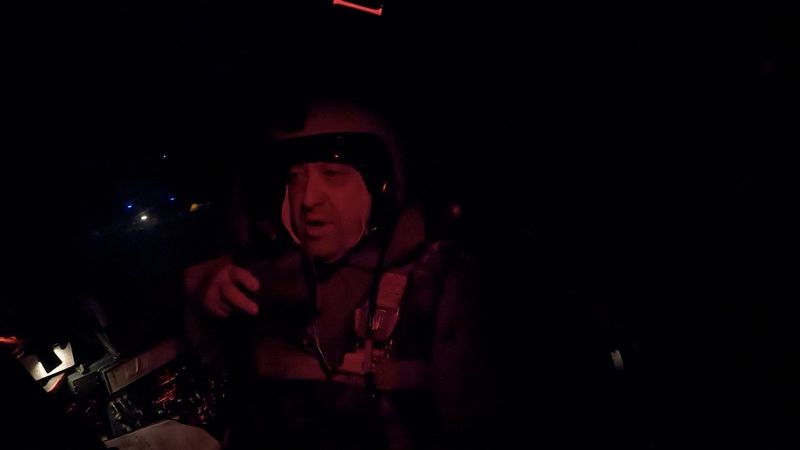Who is Kevin Hassett? Wolfe looks at the Trump ally tipped to become Fed Chair.
(Reuters) - Yevgeny Prigozhin, the head of Russia's Wagner mercenary group, said on Tuesday that he founded and financed and the Internet Research Agency, a company Washington says is a "troll farm" which meddled in the 2016 U.S. presidential election.
Prigozhin, an ally of Russian President Vladimir Putin, spent years operating on behalf of the Kremlin in the shadows, but has emerged in recent months as one of the most high profile figures connected with Russia's invasion of Ukraine.
He has previously admitted interfering in U.S. elections, but his statement on Tuesday appears to go further than before in outlining his specific links to the St. Petersburg-based Internet Research Agency (IRA).
"I was never just the financier of the Internet Research Agency. I thought it up, I created it, I managed it for a long time," Prigozhin said in a post shared on social media by the press service of his Concord catering group.
"It was created to protect the Russian information space from the West's boorish and aggressive anti-Russian propaganda," Prigozhin said.
Prigozhin was first sanctioned by the United States over his links to the Internet Research Agency in 2018 and charged with conspiracy to defraud the United States.
Special Counsel Robert Mueller’s report on his inquiry into Russia’s role in the 2016 U.S. election said that Internet Research Agency sought to sow discord in the United States through "information warfare."
It sought to sway the 2016 election in favour of Trump, Mueller’s report said.
"The campaign evolved from a generalized program designed in 2014 and 2015 to undermine the U.S. electoral system, to a
targeted operation that by early 2016 favored candidate Trump and disparaged candidate [Hillary] Clinton," the report said.
"IRA employees also traveled to the United States on intelligence-gathering missions."
Prigozhin, who spent the final decade of the Soviet Union in prison for robbery and fraud, was for years an associate of Putin. His catering group swept up government contracts, earning him the nickname of "Putin's Chef", while he deployed Wagner mercenaries to fight alongside Russian servicemen in Syria and to conflicts across Africa to advance Russia's geopolitical interests.
After years of denials, he last year admitted his links to Wagner and said he had interfered in U.S. elections.
Having rapidly built his public profile both in Russia and abroad since Russia invaded Ukraine, analysts say the Kremlin has moved to clip his wings more recently, concerned about the outspoken businessman's growing stature and high-profile criticism of the defence ministry.
